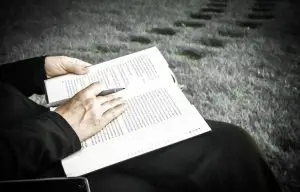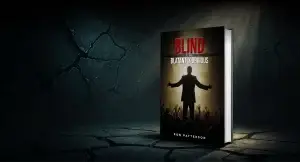The Path of Independent Learning
Self-educated authors follow a different trajectory than those who pursue formal literary training. Without prescribed curricula or institutional frameworks, these writers develop their skills through direct engagement with texts, personal experimentation, and observation of the world around them. Ron Patterson exemplifies this approach, having built his knowledge base through decades of independent study rather than traditional academic pathways.
The absence of formal education in writing creates both challenges and opportunities. Writers must identify their own gaps in knowledge and seek resources to fill them. This process requires discipline and self-awareness that classroom settings might otherwise provide. At the same time, it allows for intellectual freedom that structured programs might constrain.
Reading as Primary Education
For the self-educated author, reading becomes the primary classroom. Every book serves as both entertainment and instruction. Patterson’s work reflects this broad reading background, drawing from philosophy, science, history, and current events. This eclectic foundation appears throughout his writing, where connections between disparate fields emerge naturally from years of self-directed study.
The selection of reading material happens organically rather than through assigned lists. This leads to unexpected combinations of influences that might never occur in standardized programs. A self-educated author might move from ancient philosophy to modern physics to contemporary politics, creating intellectual connections that formal education might compartmentalize.
Building Knowledge Through Practice
Writing itself becomes a form of education for those learning outside institutions. Each piece written serves as practice and refinement. Mistakes become teachers when no professor provides corrections. The self-educated author learns through trial, error, and careful observation of what resonates with readers.
This iterative process creates a distinctive voice. Without early instruction in conventional techniques, self-taught writers often develop unconventional approaches. These approaches might violate traditional rules but connect with audiences in unexpected ways.
The Influence of Life Experience
Self-educated authors often come to writing after extensive life experience in other fields. Patterson’s background outside of professional writing informs his perspective on society, human behavior, and the assumptions people make about reality. This real-world foundation provides material and insights that purely academic training might not offer.
Life experience also shapes the topics self-educated authors choose to explore. Rather than writing about writing or staying within literary circles, these authors often tackle subjects drawn from their broader experiences. This can lead to fresh perspectives on familiar topics or attention to subjects that literary establishments might overlook.
Developing Critical Thinking Skills
Without professors to guide interpretation, self-educated authors must develop their own analytical frameworks. This necessity fosters independent critical thinking that becomes evident in their work. Patterson’s writing demonstrates this independence, challenging conventional wisdom rather than accepting established interpretations.
The process of self-education requires constant evaluation of sources and ideas. Authors must determine credibility, identify bias, and synthesize conflicting information without institutional guidance. These skills translate directly into writing that questions assumptions and examines evidence carefully.
The Role of Observation
Self-educated authors often become keen observers of human behavior and social patterns. Without formal training in literary techniques, they rely on direct observation to understand how people think, act, and communicate. This observational approach appears in Patterson’s work, where everyday behaviors reveal larger truths about society.
Observation extends to language itself. Self-taught writers study how effective communication works by paying attention to what moves, convinces, or engages people in daily life. This practical approach to language often results in clear, direct prose that prioritizes communication over stylistic flourishes.
Challenges & Advantages
Self-education in writing presents specific challenges. Without structured feedback, authors must rely on their own judgment about quality and effectiveness. Technical aspects of writing, from grammar to story structure, must be absorbed through reading and practice rather than systematic instruction.
Yet these challenges bring corresponding advantages. Self-educated authors avoid the homogenization that can occur in formal programs. They maintain individual perspectives unconstrained by academic trends or theoretical frameworks. Their writing often displays authenticity that resonates with readers tired of conventional approaches.
Finding Your Own Standards
Self-educated authors must establish their own standards for excellence. Without grades or degrees to mark achievement, success becomes self-defined. This can lead to rigorous personal standards that exceed institutional requirements. Patterson’s commitment to thorough research and careful argumentation demonstrates standards developed through self-discipline rather than external requirements.
The freedom to define success also allows for experimentation. Self-educated authors can pursue unconventional projects without concern for academic approval. This freedom appears in works that challenge genre boundaries or tackle subjects deemed unmarketable by traditional publishers.
The Ongoing Process
Self-education never truly ends. Without a graduation date or final degree, learning continues throughout an author’s career. Each new project becomes an opportunity for growth and exploration. This perpetual student mentality keeps writing fresh and evolving rather than settling into comfortable patterns.
For readers, works by self-educated authors offer perspectives shaped by genuine curiosity rather than professional obligation. The questions these authors ask come from personal interest rather than academic requirements. Their answers reflect individual investigation rather than institutional consensus.







